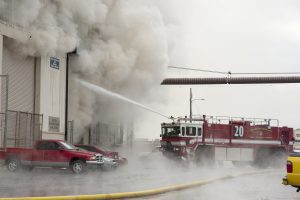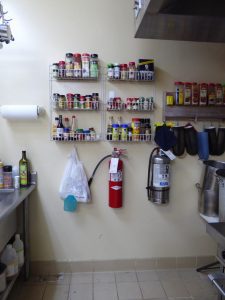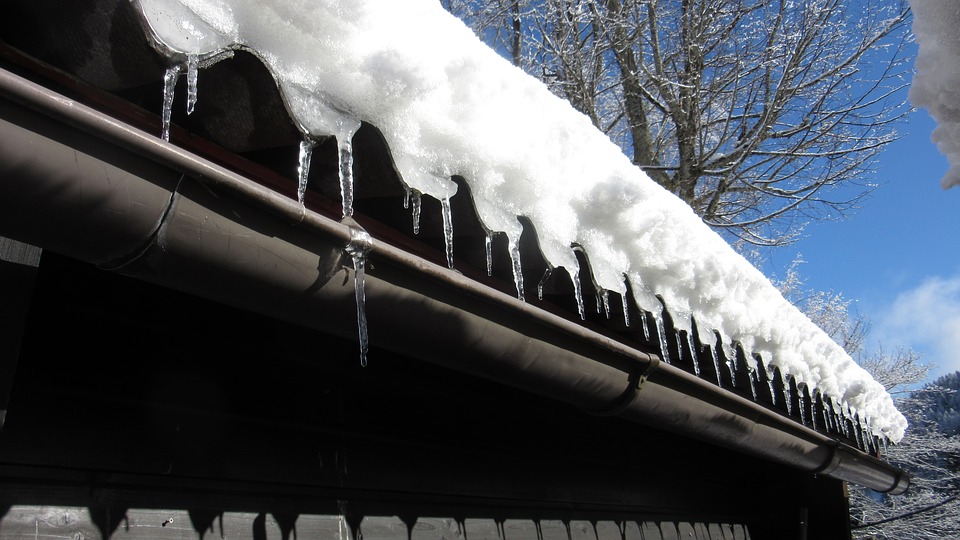Workplace Fire Prevention
Most people have at least a basic fire safety plan in place at home, but it’s also important to practice fire safety at work. Adults sometimes spend more time at work than at home, so it’s crucial to know how to minimize the risks of fires.
Preventing Commercial Building Fires
Many ideas are common sense and similar to what you do at home, but commercial or industrial settings have their own challenges that you don’t encounter in a private home.
Follow these fire safety tips to minimize the risks at your company:
- Emergency contacts. Be sure emergency contact numbers are right next to your phone, along with your company’s exact address. You know how to get to work, but do you know the street address to give to a 911 operator? A temporary worker may be at your desk the day disaster strikes, or someone may use your phone in a panic. Print the information on a mailing label and attach it directly to your office phone.
- Secure the building. Do your part to maintain the building’s security to cut down on the risk of arson. Be sure all doors and windows are locked, report any new people who are hanging around the area frequently to security, and make sure that trash containers like dumpsters are kept away from buildings. These are often filled with combustible items like paper and cardboard that can be easily lit to start a fire that spreads to the rest of the building.
- Keep a clean office. Keep your workspace tidy by keeping clutter to a minimum, especially around emergency exits and safety equipment like fire extinguishers. File books and papers regularly, keep work surfaces and walkways clear, and make sure exits aren’t blocked by boxes or unused equipment.

- Report fire hazards. Report any malfunctioning equipment or electrical hazards immediately. Bad wiring and electrical shorts are two common causes of fires that can be prevented with maintenanceMaintenance is the routine care, inspection, and repair of a... More, if caught in time.
- Use caution with tools. Be cautious when using any tools to ignite a torch in a shop. Vapors can ignite unexpectedly when using a sparking tool. Use non-sparking tools and follow static electricity protocol.
- Remove oily rags. Never leave oily rags in ordinary trash cans or on work benches. A carelessly thrown cigarette or spark from a torch can start a fire. Oily rags should have their own waste can with a lid that should be properly emptied on a regular basis.
- Ensure everything is closed properly before leaving. Be sure there is clear access to all electrical control panels and items are labeled for easy access. Never assume that a long time employee will be the one shutting things down in an emergency; everyone has seen movies with frightened people being guided through a disaster situation by an expert.
- Proper chemical storage. Make certain that all chemicals are stored safely, and that all employees know how to use them safely. The Material Safety Data Sheet will have information on flammability and other hazards; keep these sheets near the chemicals for future reference. Ensure plenty of ventilationVentilation is the process of exchanging or circulating air ... More when using chemicals by opening windows or using exhaust fans.
- Never smoke in storerooms or areas where chemicals are stored. Smoking should only be allowed in designated areas away from the building, and cigarettes and cigars should always be properly extinguished in approved containers.
- Machine maintenanceMaintenance is the routine care, inspection, and repair of a... More. Keep up with routine machine maintenanceMaintenance is the routine care, inspection, and repair of a... More to avoid overheating and sparking, which can ignite nearby materials. A small amount of attention on a regular basis can prevent larger problems that can leadLead is a heavy metal that can be toxic to humans, especiall... More to a huge disaster.
 Train employees on fire safety. Make sure that people in the building know basic techniques, such as how to use a fire extinguisher and how to perform CPR. Those who work in hospitals and other healthcare centers should be well-informed on fire safety to protect themselves and patients. Check the cases for fire extinguishers to make sure they open and close easily. Consider having a fire preventionPrevention refers to actions taken to reduce the likelihood ... More week to brush up on staff knowledge and give your company a thorough once-over. The National Fire Protection Association has observed a Fire PreventionPrevention refers to actions taken to reduce the likelihood ... More Week since 1922 during the week of October 9, to commemorate the Great Chicago Fire of 1871.
Train employees on fire safety. Make sure that people in the building know basic techniques, such as how to use a fire extinguisher and how to perform CPR. Those who work in hospitals and other healthcare centers should be well-informed on fire safety to protect themselves and patients. Check the cases for fire extinguishers to make sure they open and close easily. Consider having a fire preventionPrevention refers to actions taken to reduce the likelihood ... More week to brush up on staff knowledge and give your company a thorough once-over. The National Fire Protection Association has observed a Fire PreventionPrevention refers to actions taken to reduce the likelihood ... More Week since 1922 during the week of October 9, to commemorate the Great Chicago Fire of 1871.
If your company is unfortunate enough to experience a fire, you know that every day the doors are closed is another day you’re not serving your customers and making money. Call a local disaster restorationRestoration is the process of returning a property to its pr... More company that provides comprehensive fire damage restoration services.
Emergency Fire Damage Restoration
We’re on call 24 hours a day, 7 days a week to respond quickly and provide restorationRestoration is the process of returning a property to its pr... More to damaged structural elements and content before the damage can become permanent. We can remove sootSoot is fine black particles composed of carbon and other ma... More and smoke damage from even the most hopeless looking items, but only if you call as soon as possible after the fire is out. We can also remove the overwhelming smoke odor from porousPorous describes a material that contains small openings or ... More surfaces like textiles and furniture that can linger for weeks after a fire.
Fire and smoke damage restorationRestoration is the process of returning a property to its pr... More costs vary, depending on the extent of the damage and the number of items that need to be restored. According to HomeAdvisor.com, the national average is $10,499.












